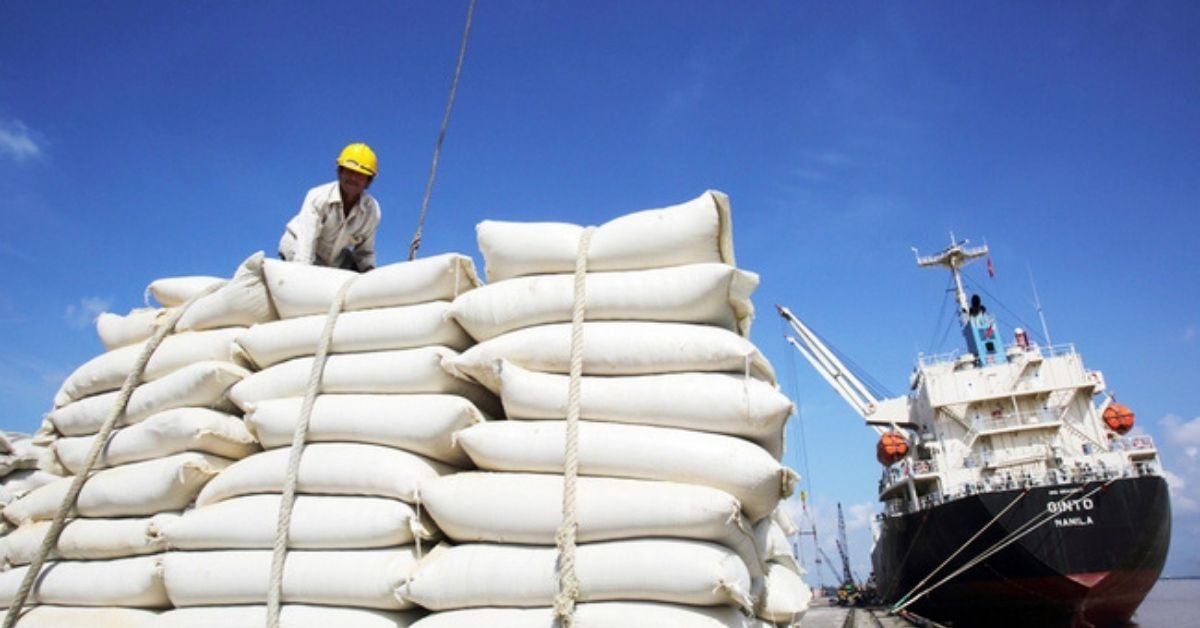The Bangladesh government has cut the import duty on rice further to 5 per cent while liberalising shipments of the cereal into the country in its efforts to build the foodgrain’s inventory.
In a notification issued during the weekend, the Sheikh Hasina Wazed government amended its Customs Act, 1969, to allow imports of the cereal – parboiled rice except aromatic and white rice except aromatic- by more private traders.
Curbing inflation
The decision to liberalise rice imports and cut its Customs duty is expected to help Bangladesh’s private sector to build ample stocks over the next couple of months.
The Sheikh Hasina Wazed government’s move is also aimed at curbing food inflation. Rice prices have surged by over 10 per cent resulting in Dhaka raising its foodgrain import target by almost double to 1.2 million tonnes. The Wazed government is looking to accumulate rice stocks as its inventory to a worrisome 18 lakh tonnes.
The import duty on rice has been lowered from 25 per cent, which had earlier been reduced on June 24 from 62.5 per cent. Then, the Bangladesh government banned exports of all types of rice to meet domestic demand.
Indian paddy acreage 6% lower
In a related development, an Indian public sector has backed off from a reported “deal” to export one lakh tonnes of parboiled rice to Bangladesh on a government-to-government (G2G) basis. This is significant in the wake of the area under paddy being 6 per cent lower in India during the current kharif sowing season.
Last week, trade sources said the public sector had reportedly entered into a deal to export rice at $422 a tonne cost and freight (C&F) liner out, which includes all expenses, including loading and unloading that a vessel might incur while shipping the consignment.
However, Dhaka’s deal with a South-East Asian firm to import 2.3 lakh tonnes at $522 a tonne C&F liner out on G2G basis is reportedly in place.
Grim food situation
Bangladesh’s move to liberalise rice imports comes on the heels of at least 1.4 lakh tonnes of the cereal being imported from India in recent weeks. The shipments, via road and sea, at an average of $464 a tonne have pushed up domestic rice prices.
Dhaka plans to import 6.5 lakh tonnes of rice this year, the US Department of Agriculture said. Bangladesh is facing a grim food situation as its Aush, Aman and Boro crops have been affected by the weather this year. Bangladesh produces 37.5 million tonnes of rice annually with the Aman crop making up nearly 40 per cent of it.
Even if 10 per cent of the Aman crop is impacted due to a prolonged dry period – similar to what is being witnessed in West Bengal this year, it could result in a huge loss in rice production for Dhaka.
Indian rice prices up
The Wazed government also failed to procure ample stocks during April-June this year from India as it imported a meagre 4,413 tonnes. Last fiscal, Dhaka imported 1.62 million tonnes of rice from India.
According to the Ministry of Consumer Affairs, the all-India daily average price of rice is currently ₹37.81 a kg, up 4.5 per cent a month ago and 10.65 per cent a year ago. As per the Ministry of Agriculture’s Agmark portal, the national weight average modal price (the rate at which most trades take place) is ₹3,286 a quintal compared with ₹2,841 a month ago.
In the global market, Indian 5 per cent broken white rice is quoted $343-347 a tonne, while Pakistan is offering the cereal at $363-67. Thailand’s 5 per cent broken is ruling at $431 and Vietnam’s at $393-7.
Crucial Food Ministry meet
India’s 5 per cent broken parboiled rice is quoted at $368-72, Thailand at $439 and Pakistan’s at $398-402. Rice prices have eased a tad in the global market in view of the dollar strengthening against other currencies.
In India, a crucial meeting called by the Food Ministry to decide the rice procurement target for the kharif marketing season starting October 1 will be held on Tuesday. The meeting will likely consider regulating rice imports and ways to contain food inflation.







